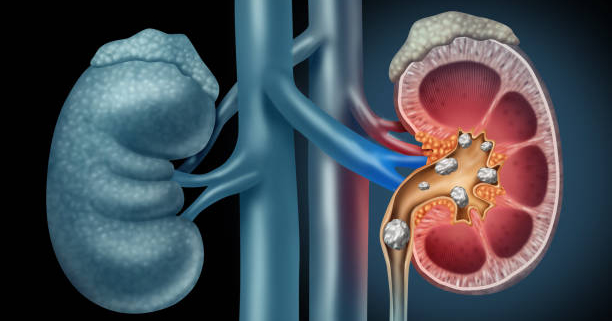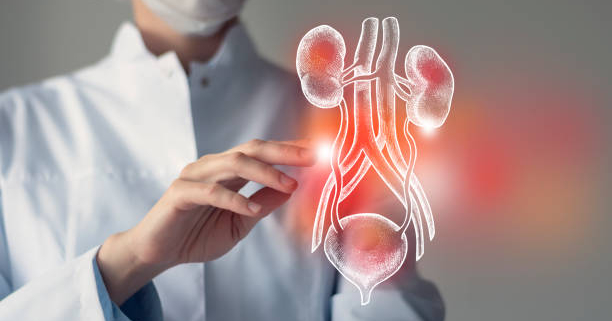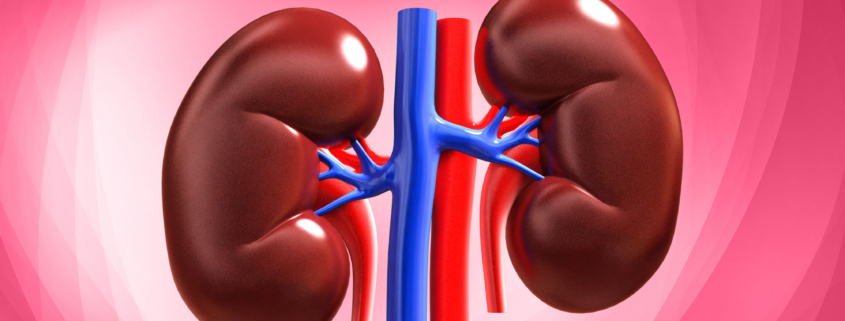Kidney stones, those tiny but terrible masses of minerals, can wreak havoc on your urinary system. Affecting over 12% of the Indian population, they’re a common yet painful problem.
This blog dives deep into the world of kidney stones, exploring their causes, symptoms, diagnosis, and most importantly, prevention and treatment options.
Kidneys remove waste products from your blood, sending them out in your urine. But sometimes, minerals and salts in your urine can become concentrated, forming hard deposits – kidney stones. These stones can vary in size, from a speck to a bothersome pebble.
Causes of Kidney Stones
While the exact cause remains elusive, several factors can contribute to kidney stone formation:
- Dehydration: Think of your urine as a solvent. When you don’t drink enough fluids, the urine becomes more concentrated, increasing the chance of minerals crystallizing and forming stones. Aim for plenty of water throughout the day!
- Dietary Choices: A diet high in salt, sugar, and animal protein can tip the scales in favor of stone formation. Moderation is key!
- Genetic Predisposition: If kidney stones run in your family, you might be more susceptible.
- Underlying Medical Conditions: Certain medical conditions like gout, hyperparathyroidism, and Crohn’s disease can increase your risk.
Symptoms of Kidney Stones
Kidney stones often announce their presence with a bang – excruciating pain. Here are some red flags to watch out for:
- Severe pain in your back, side, or groin: This pain can be sharp, stabbing, or come in waves, often radiating from your back to your lower abdomen.
- Painful urination: Passing urine can become a burning sensation, accompanied by discomfort.
- Difficulty passing urine: You might feel an urge to urinate frequently, but only manage to pass small amounts.
- Blood in your urine: The stone could irritate the lining of your urinary tract, leading to blood in your urine.
- Nausea and vomiting: The intense pain can sometimes trigger nausea and vomiting.
Diagnosis of Kidney Stones
If you experience these symptoms, consulting a doctor is crucial. Here’s what you might expect:
- Urine test: This checks for blood, infection, or abnormal mineral levels.
- Blood test: It helps assess your overall health and identify any underlying medical conditions.
- Imaging tests: X-rays, CT scans, or ultrasounds can pinpoint the location and size of the stone.
Precautions for Kidney Stones
Here’s the good news: you can significantly reduce your risk of kidney stones with some lifestyle changes:
- Hydration is Key: Aim for plenty of water throughout the day. Clear urine is a good indicator of adequate hydration.
- Dietary Tweaks: Limit salt, sugar, and animal protein intake. Choose fruits, vegetables, and whole grains for a kidney-friendly diet.
- Medication Management: Discuss any medications you take with your doctor, as some can increase your stone risk.
- Manage Medical Conditions: If you have a condition linked to kidney stones, proper management is essential.
Treatment for Kidney Stones
The treatment for kidney stones depends on their size and location. Here are some common approaches:
- Passing the Stone Naturally: For small stones, drinking plenty of fluids and pain medication might be enough to help you pass the stone.
- Shockwave Lithotripsy: Sound waves are used to break down larger stones into smaller fragments that you can then pass.
- Ureteroscopy: A thin, lighted tube is inserted through your urethra and bladder to reach the stone. Lasers or other tools can then be used to break down or remove the stone.
- Percutaneous Nephrolithotomy (PCNL): For larger or complex stones, a small incision is made in your back, and a thin tube is inserted into your kidney to remove the stone.
Kidney Stone treatment at Ayushman Hospital and Health Services
Ayushman Hospital and Health Services stand as your partner in conquering kidney stones. We prioritize high-quality and affordable care. Our urology team is well-versed in diagnosing and treating stones using the latest techniques. Advanced diagnostic tools like X-rays, CT scans, and ultrasounds ensure accurate stone identification. Whenever possible, they prioritize minimally invasive procedures like ureteroscopy to minimize discomfort and recovery time. Additionally, we offer a holistic approach, including pain management and dietary counseling, to ensure a smooth recovery from your kidney stone troubles.






